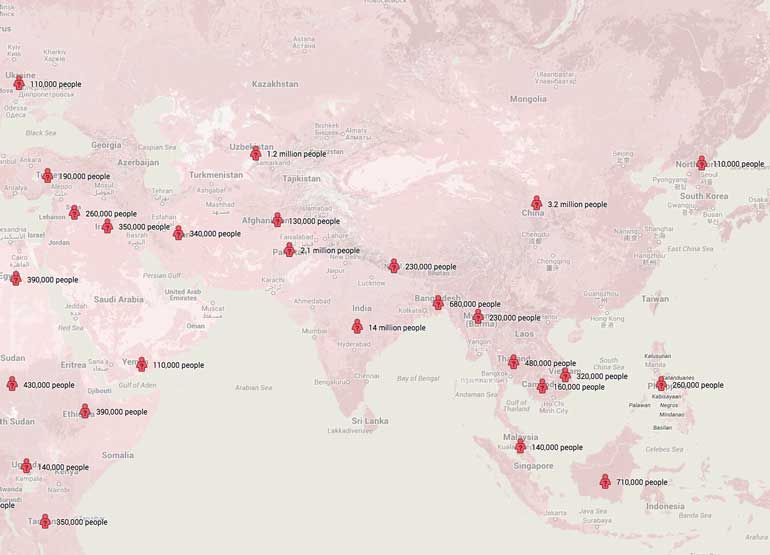Nick Jean
More than 220 years after Upper Canada became the first British colony to abolish slavery, an estimated 4,600 people in the country are still being victimized, according to Walk Free Foundation (WFF).
The Australia-based NGO “dedicated to ending modern slavery” recently released its second annual Global Slavery Index, ranking 167 countries across the globe for the prevalence of “modern slavery” and their legislative response to that threat.
WFF defines modern slavery as any situation wherein “one person (deprives) another person of their freedom: their freedom to leave one job for another, their freedom to leave one workplace for another, their freedom to control their own body.”
Modern slavery involves one person possessing or controlling a person in such a way as to significantly deprive that person of their individual liberty, with the intention of exploiting that person through their use, management, profit, transfer or disposal. – Walk Free Foundation
WFF defined three main categories of modern slavery: trafficking in persons, slavery and slavery-like practices, and forced labour.
That 4,600 victim estimate places Canada 151st by proportion of population (0.013 per cent.)
On the legislative front, government response to modern slavery was rated based on five aspects: attitudes, social systems and institutions; coordination and accountability; criminal justice; support for survivors; and business and government.
Canada was given a BB rating (the eighth-best on a 12-rating scale.) Where WFF found our government failed was on survivor supports (rated at 44.4 per cent) and business and government (0 per cent). The latter is a rating of businesses’ and governments’ efforts to avoid sourcing goods and services produced via modern slavery.
Andrea Burkhart, executive director of ACT Alberta (Action Coalition on Human Trafficking in Alberta) said Canada has done a lot but there is a lot more that can be done. The government and citizens need to do more, Burkhart said, to educate themselves about modern slavery, invest in collaborations and fund organizations working to combat these crimes.
The Global Slavery Index is “not a perfect tool,” Burkhart said, because “the reality is, we don’t know” the numbers. She said it is serving a good purpose in by drawing attention to the issues and “sparking conversations.”
Below is a map of all nations WFF said are home to more than 100,000 modern slaves. Surprising entries include 240,000 victims in Japan, 110,000 in Ukraine and 1 million in Russia.

